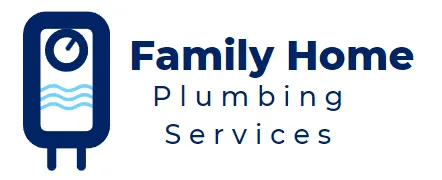Types of Water Heaters:
Which One is Best?
Choosing a new water heater can be overwhelming with the multitude of options available, including traditional tanks, solar units, and tankless models, each offering different levels of energy efficiency and hot water capacity. To assist you in making an informed decision based on your family's needs, our comprehensive guide provides an in-depth review of each water heater type. By reading further, you will be well-prepared to make the right choice. It's important to consider the unique advantages and disadvantages of each type before finalizing your decision.

Traditional Storage Tank Water Heaters
Tank-style water heaters are a popular choice for efficiently heating and storing water in insulated tanks. They utilize gas, electric, or oil as an energy source to heat the water. These units provide a continuous supply of hot water, making it readily available whenever you need it with just a simple turn of the tap.
Pros:
Lower cost: Tank-style water heaters are generally more affordable upfront compared to other types of water heaters.
Longer warranty periods: They often come with longer warranty periods, providing added protection and peace of mind.
Ease of maintenance: Maintenance for tank-style water heaters is typically straightforward and doesn't require complex procedures.
Cons:
High operating expenses: Traditional water heaters are known for their lower energy efficiency, resulting in higher operating expenses over time.
Limited capacity: The tank size determines the amount of hot water available, which can lead to a shortage during peak usage periods.
Risk of water damage: There is always a risk of water damage if the tank develops a leak or fails, potentially causing significant damage to the surrounding area.


Tankless Water Heaters
Tankless water heaters offer a modern and efficient alternative to traditional water heaters. Unlike tank-style models that store and heat water continuously, tankless units heat water on demand. This approach saves energy and frees up valuable space in your home. While the upfront cost of a tankless water heater may be higher, the long-term savings on utility bills compensate for it. With their energy-saving benefits, tankless water heaters provide a more eco-friendly and cost-effective solution for meeting your hot water needs.
Pros:
Easy installation: Their compact design makes installation straightforward.
High energy efficiency: They provide consistently low monthly bills due to their energy-saving capabilities.
Continuous hot water supply: You won't run out of hot water as long as there is demand.
Longer lifespan: Tankless water heaters have a longer life expectancy, making them a smart and economical investment.
Cons:
Higher initial cost compared to traditional water heaters.
Venting complexities in small spaces.
Limited capacity for high-demand applications.
Heat Pump Water Heaters
Heat pump water heaters are known for their high efficiency and cost-effectiveness in heating water. They utilize a small compressor to extract heat from the air, making them an energy-efficient option. The best part is that they can provide hot water without consuming a significant amount of energy, resulting in cost savings. Additionally, heat pump water heaters operate without electricity, making them a reliable source of hot water even during power outages. Enjoy the benefits of efficient and affordable hot water with a heat pump water heater.
Pros:
Energy efficiency: Heat pump water heaters are highly energy efficient, which can result in reduced utility bills compared to traditional water heaters.
Renewable energy utilization: These water heaters harness renewable energy from the air, making them a more sustainable and environmentally friendly option.
Continuous hot water during power outages: Even during power outages, heat pump water heaters can still provide hot water
Cons:
Higher initial cost: Heat pump water heaters generally have a higher upfront cost compared to traditional water heaters.
Ventilation and space requirements: These water heaters may require more ventilation and space for installation.
Limited capacity: Heat pump water heaters may have a limited capacity, resulting in a lower availability of hot water per usage.
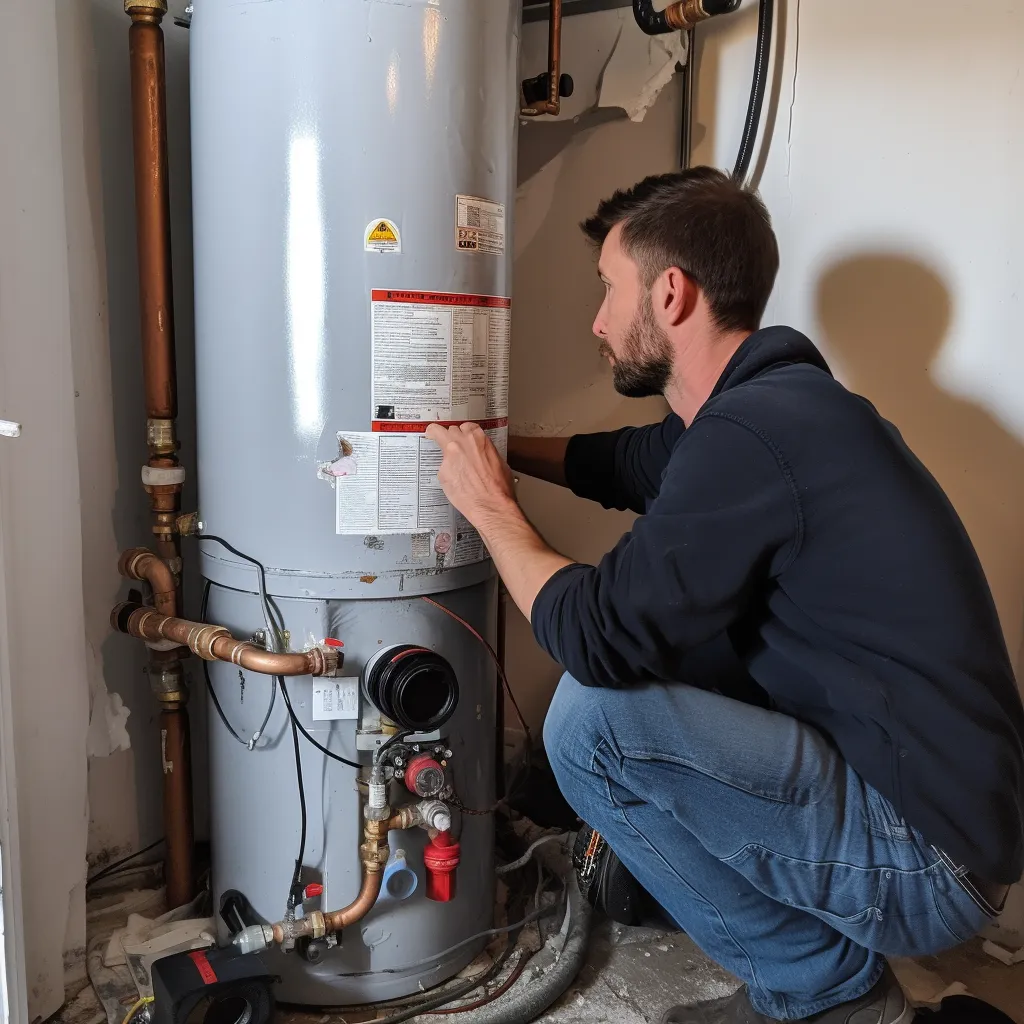

Heat Pump Hybrid Water Heaters
Heat pump hybrid water heaters offer a combination of the benefits found in both conventional storage tank water heaters and heat pump systems. They provide high efficiency and lower operating costs compared to traditional models. While they may require a higher initial investment, their superior functionality and effectiveness make them a worthwhile choice.
Pros:
Increased energy efficiency, leading to reduced utility bills.
Renewable energy utilization for sustainability.
Hot water availability during power outages.
Longer lifespan compared to traditional storage tank heaters.
Cons:
Higher initial cost compared to conventional storage water heaters.
Potential ventilation and space requirements that may pose installation challenges.
Limited capacity, resulting in a finite amount of hot water available for each use.
Risk of water damage if the tank fails or leaks.
Solar Powered Water Heaters
Solar-powered water heaters provide an excellent opportunity to lower monthly utility bills and harness renewable energy. There are two main types available: active and passive systems. These systems work by utilizing the sun's energy to heat stored water, offering a straightforward and cost-effective method to save money. By opting for a solar-powered water heater, you can enjoy the benefits of reduced energy costs while embracing a more sustainable and environmentally friendly approach to heating water.

Active Systems:
Active solar-powered water heaters operate using pumps to transfer hot fluid from the collectors to a storage tank for future use. These systems are known for their efficiency and ability to generate significant amounts of hot water. By utilizing active systems, you can optimize the collection of solar energy and enjoy ample hot water supply for your household needs.
Passive Systems:
Passive solar water heaters rely on natural convection to transport heated fluid from the collectors to a storage tank, utilizing solar power to heat the water. These systems are characterized by their low installation and maintenance costs. While they may not provide as much hot water as active systems, passive solar water heaters are a cost-effective and environmentally friendly option for harnessing solar energy to meet your hot water needs.
Pros:
High efficiency, resulting in cost savings on energy bills.
Utilization of renewable energy from the sun.
Longer lifespan compared to traditional water heaters.
Cons:
Higher initial cost compared to traditional storage tank heaters.
Additional space and equipment requirements may complicate installation.
Risk of water damage if solar panels become faulty or damaged.

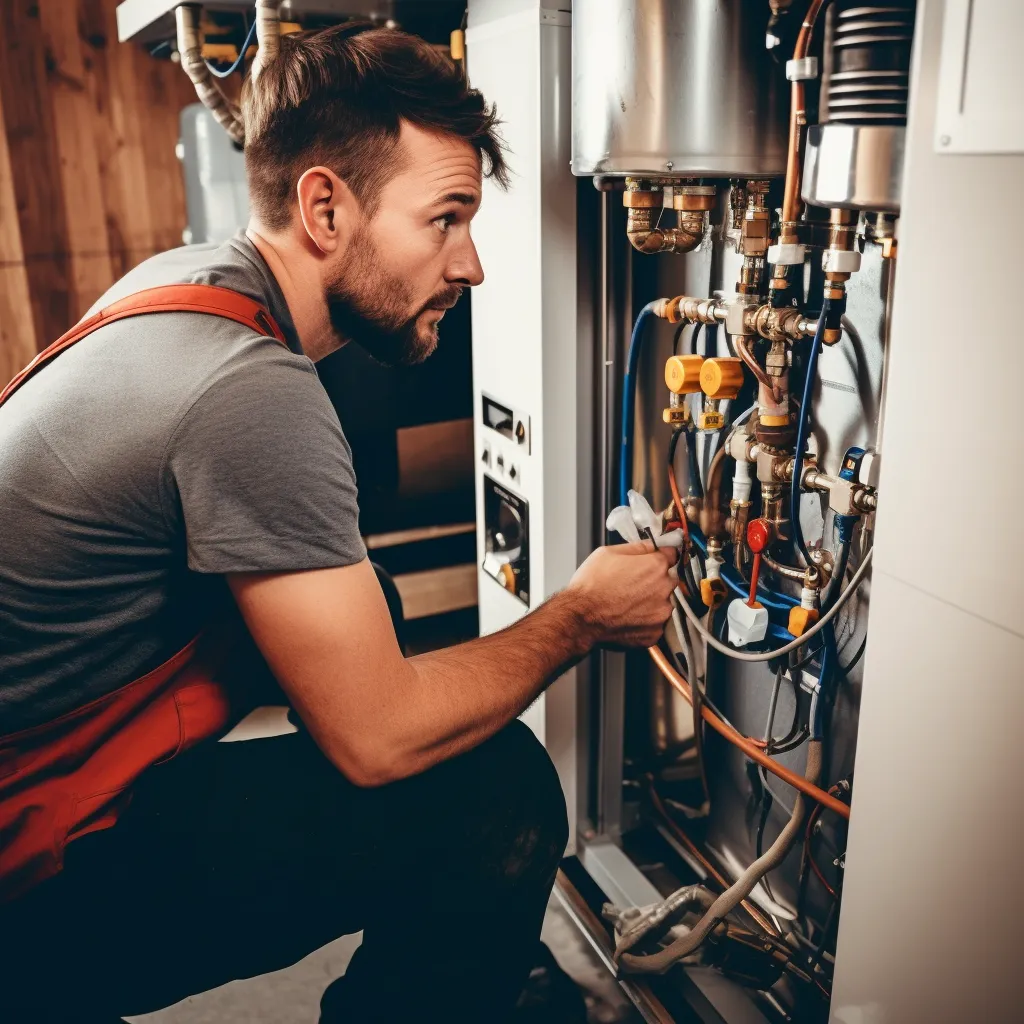
Point-of-Use Water Heaters
Point-of-use water heaters offer the convenience of hot water on demand in a compact and efficient system. They are particularly suitable for small spaces or for those seeking an alternative to traditional storage tanks to avoid associated costs and inefficiencies. By providing hot water directly at the point of use, these heaters eliminate the need for long pipe runs and minimize heat loss.
Pros:
High energy efficiency, resulting in lower monthly utility expenses.
Compact size, allowing for easy installation and maintenance in small spaces.
Longer lifespan compared to storage tank heaters.
Cons:
Higher initial cost and potential need for extra ventilation and installation space.
Lower hot water capacity, leading to limited availability per use.
Higher risk of water damage due to tank failure or leaks in tankless heaters.
Water Heaters With Hydronic Boilers
Hydronic boilers are a highly efficient heating system that utilizes water instead of air to circulate heat throughout your space. They are capable of providing both hot water for domestic use and space heating, making them suitable for colder climates. Additionally, hydronic boilers can be paired with tank water heaters to meet your hot water needs more affordably.
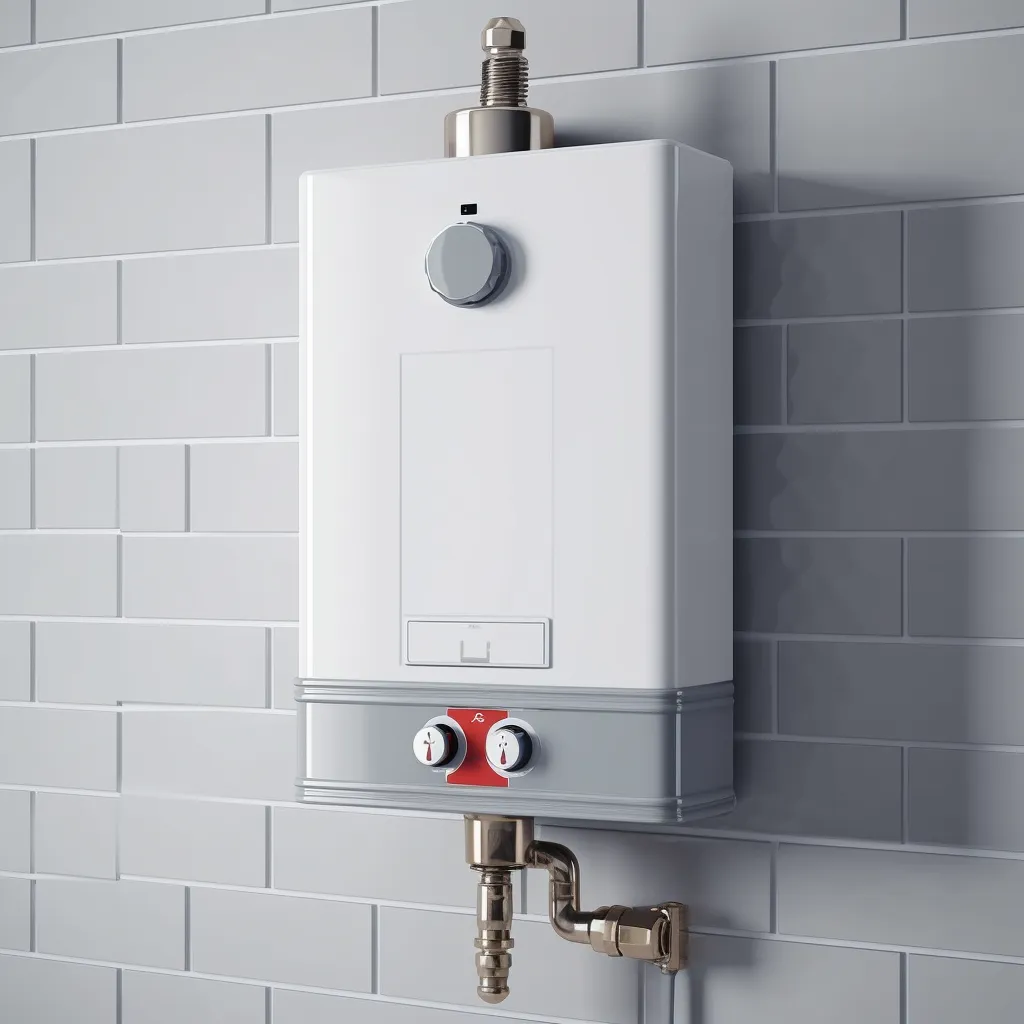
Pros:
High efficiency, leading to lower monthly utility bills.
Provides both space heating and domestic hot water.
Compact design for easy installation in tight spaces.
Longer life expectancy compared to traditional tank water heaters.
Cons:
Higher initial cost compared to traditional storage models.
Limited capacity, resulting in less hot water per use.
Possibility of noise generation during operation.
Potential ineligibility for certain utility rebates or incentives.


Smart Water Heaters
Upgrade your water heating system with smart water heaters, the cutting-edge technology for efficient hot water production. With Wi-Fi enabled thermostats, you can easily manage your hot water consumption and expenses from anywhere. Take control of temperature settings and customize them according to your needs, all through your smartphone.
Pros:
Remote control via Wi-Fi enabled thermostat, allowing convenient management of the water heater from smartphones or other devices.
Energy-saving modes, such as vacation mode, help reduce monthly energy bills.
Compact size facilitates easy installation and maintenance, even in tight spaces.
Longer life expectancy compared to traditional storage tank heaters.
Cons:
Higher cost compared to traditional storage water heaters.
Some utility rebates or incentives may not apply.
Additional software updates may be required for compatibility with newer devices.
Potential security risks if the Wi-Fi connection is not secure.

Condensing Water Heaters
Condensing water heaters are a fusion of tankless and conventional storage tank water heaters, offering the best of both worlds. These innovative models utilize advanced technology to extract heat from exhaust gases, maximizing efficiency and providing cost savings. By capturing and utilizing this heat that would otherwise be wasted, condensing water heaters deliver better performance and increased energy efficiency.
Pros:
High energy efficiency, resulting in lower utility bills.
Longer lifespan compared to traditional tank water heaters.
Hot water availability during power outages.
Cons:
Higher initial cost.
Space and ventilation requirements.
Limited hot water capacity.
Risk of water damage in case of tank failure or leakage.
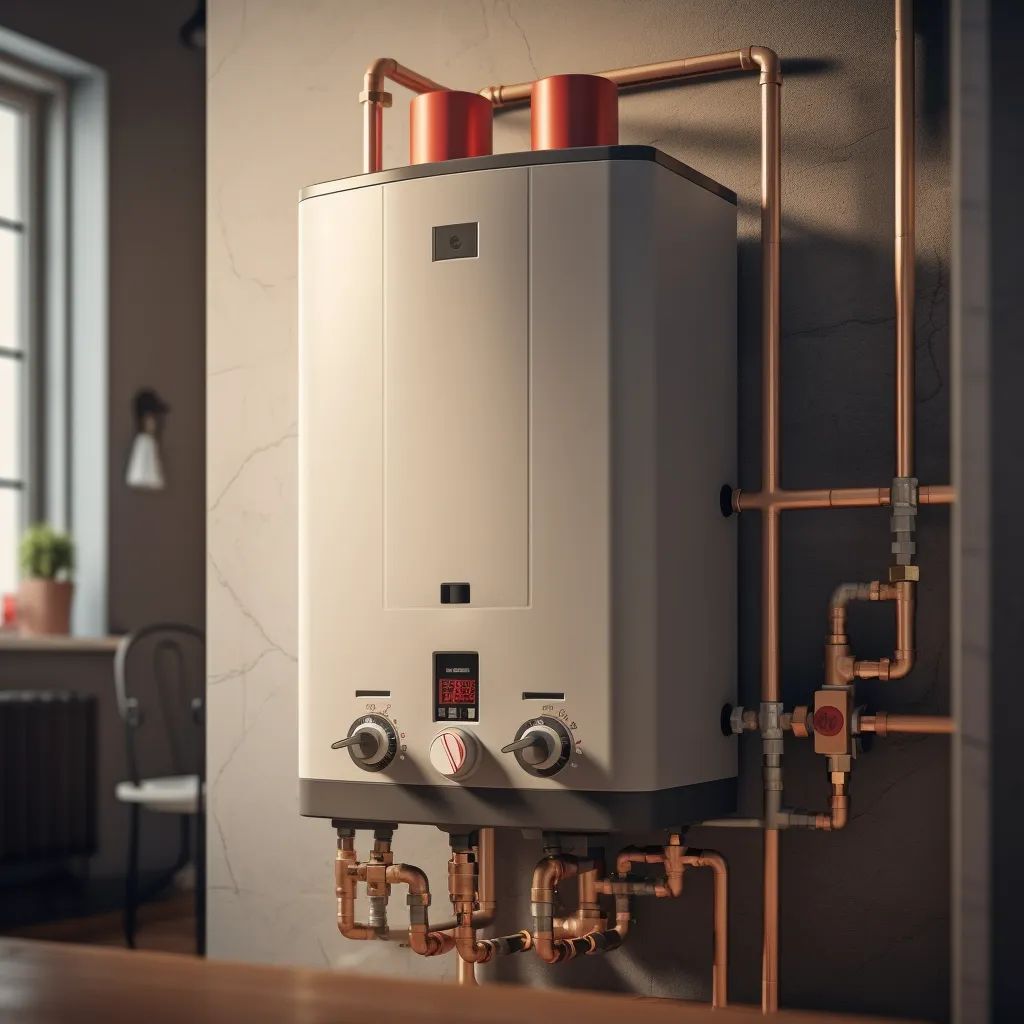
How to choose the right
water heater for your home
A water heater that is too small can result in insufficient hot water, while an oversized one can be costly and take up unnecessary space. To determine the ideal water heater size for your family's needs, consider your lifestyle and daily hot water usage. By selecting the appropriate size, you can enjoy affordable home comfort and an ample supply of hot water that meets your requirements.
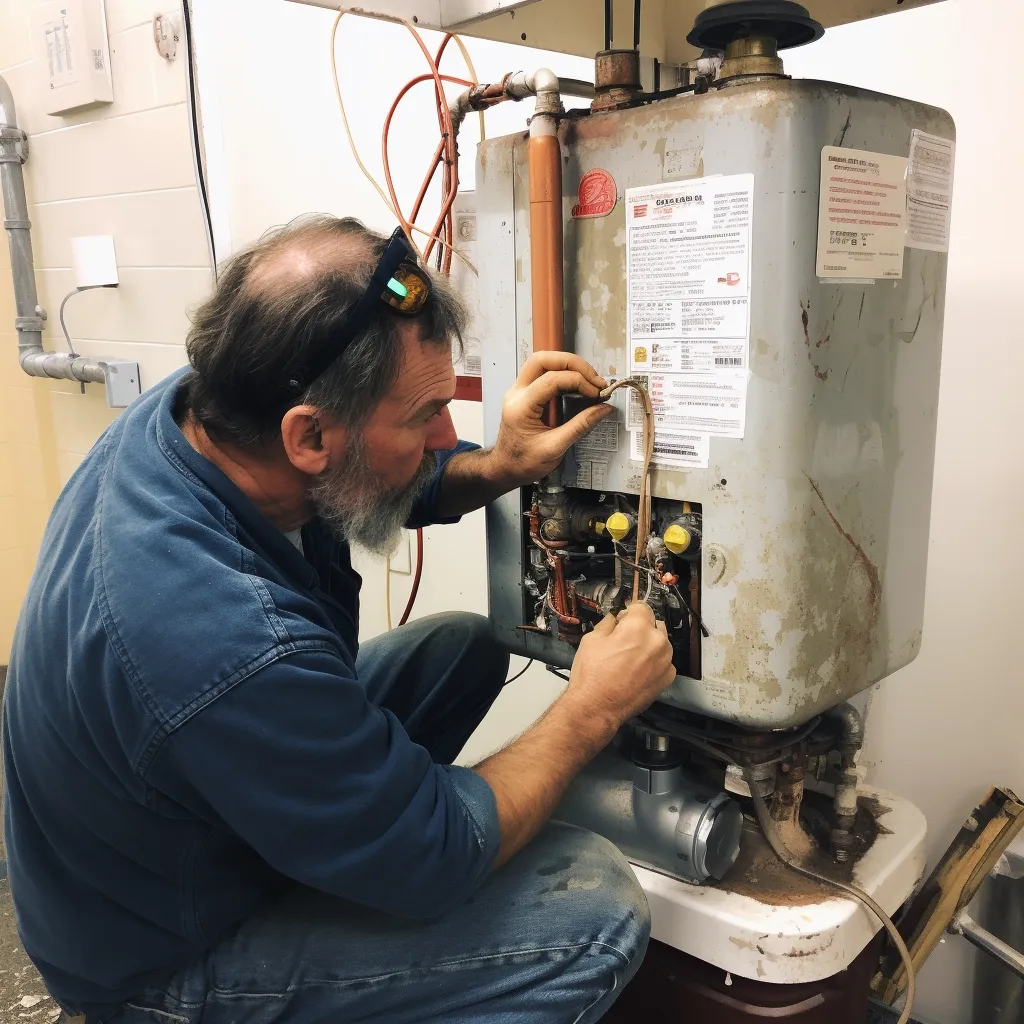
When should you
replace your water heater?
A well-functioning water heater is crucial for the proper functioning of your home's plumbing system, providing hot water for various daily tasks such as showering, dishwashing, and laundry. On average, water heaters have a lifespan of around 10-15 years. If your water heater has already reached or exceeded this lifespan, it is wise to start considering the investment in a new one. Upgrading to a newer model ensures reliable hot water supply and can help avoid potential issues and costly repairs associated with an aging unit.
Here are some signs that indicate it may be time to consider replacing your water heater:
Tank leakage.
Strange noises.
Discolored and rusty hot water.
Lack of hot water.
Fluctuations in water temperature.
High energy bills.
While the cost of installing a new water heater can be significant, the long-term benefits of improved energy efficiency and reliable performance make it a worthwhile investment. A licensed plumber can evaluate your specific needs, recommend the right type and size of water heater, and ensure proper installation for optimal efficiency and longevity.
Maintenance tips for
water heater efficiency
Regular maintenance of your water heater is essential to prevent issues and maintain its efficiency. By following simple maintenance routines, you can keep your water heater running smoothly and enjoy affordable and reliable hot water.
Benefits of hiring a licensed plumber
to replace your water heater
When considering whether to replace your water heater, it may be tempting to attempt the task yourself. However, there are several advantages to hiring a professional plumber that you should take into account.

Professionals have the necessary training and knowledge to install a new water heater safely and efficiently, providing expert advice on the best type and size for your needs.
Licensed plumbers ensure that your water heater installation meets local building codes and safety standards.
Professionals can quickly identify and solve any issues that may arise during installation, ensuring a smooth process.
Plumbers have the necessary tools and equipment to carry out the installation effectively.
Hiring a licensed plumber for water heater replacement can provide numerous benefits, including saving time, money, and avoiding potential issues.
Contact Us
GET IN FULL TOUCH
PHONE: (831) 604-3132
EMAIL:
Gregory@waterheaterseaside.com
Family Home Plumbing Services
Seaside, CA 93955
